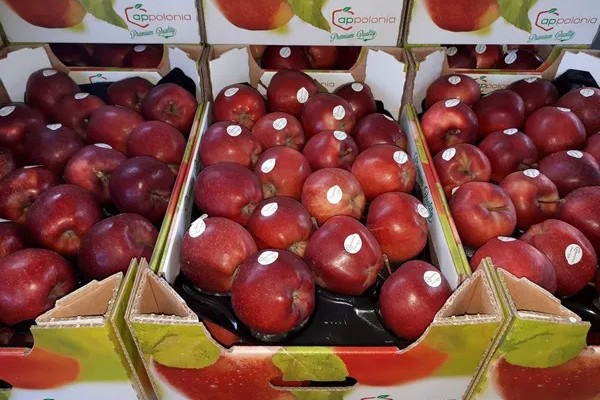Apple cultivation in Poland is not expanding. In fact, according to Paweł Puncewicz, Member of the Board of Polish apple exporter Appolonia, parts of some apple orchards are being replaced with soft fruit or cherries: "At the moment, all of the acreage for apples seems to be decreasing slightly. One could even say that some parts of the orchards are being replaced for production of other fruits, such as blueberries, cherries and raspberries. We also observe that the pear is becoming more popular in the orchards of our growers, as a new fruit being planted. When it comes to apple varieties, we observe that Gala Royal is the variety that our growers plant the most."
Puncewicz emphasizes that the rise of the Polish apple price isn't a luxury, as the input costs have increased significantly as well. "The price increases of the Polish apples have been caused by several factors, most of which are explained by the rise of production costs, such as the increase in the minimum wages of the employees. This isn't just government mandated, but also caused by the lack of sufficient workers. Then there's more costs for energy, insurance, transport and fertilizer. On top of that there's the investments done in establishing plantations, which means concrete poles, irrigation, nets and so on. Since all of these costs have increased, so have the prices for apples."

Another incoming challenge in added costs will be the EU regulations that Polish apple growers have to comply with, Puncewicz explains: "The new EU regulations do not help growers to grow cheaper fruit. It's hard to compete with countries outside of the European Union, when they have lower energy bills, smaller environmental requirements and there are more cheaper pesticides approved."
Looking at the upcoming season, Puncewicz wants to minimize the volumes that are put in cold stores, to save some of the energy costs. "Our strategy is to pack as much fruit as possible during the beginning of the season and sell the apples straight away after harvesting. Of course, we need to store some apples to be able to deliver year-round to our customers, but for many of the apples it's actually better to sell them faster. The storage of apples in ULO chambers is only adding to our huge costs and these costs are hardly recuperated, as we don't see these added costs reflected in the sales price."
Because of the EU regulations, among other factors, apple production in Poland is not expected to expand in the near future: "I think that right now there are fewer hectares being planted in Poland. Little profitability in the apple trade is discouraging young people to stay on the farms and they are looking for better paying jobs in other sectors. In our region, we're also observing an increase in the construction of houses, which also needs land. If Europe will continue to apply new laws for the farmers, leading to other strange and high cost requirements, we don't see the production costs of apples and other food will increase any time soon," Puncewicz concludes.
For more information:
Jakub Krawczyk
Appolonia
Tel: +48 785 342 930
Email: jakub.krawczyk@appolonia.pl
www.appolonia.pl
